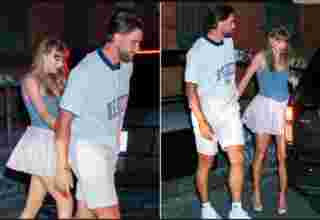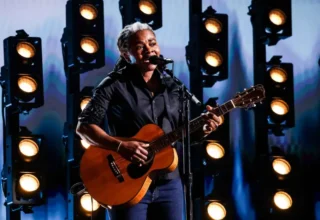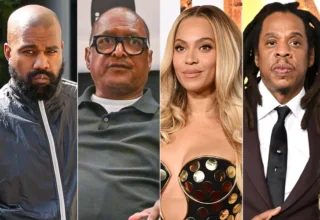
Federal prosecutors in New York filed more than 150 pages in legal briefs late Monday defending the Chicago-based singer R. Kelly’s conviction last year on racketeering charges, arguing the evidence of his sexual misdeeds was overwhelming and that jurors were properly vetted for any potential bias.
The filings were a response to motions by Kelly’s attorney last month alleging prosecutors misused a federal statute meant to go after gang leaders and that Kelly’s ineffective lawyers failed to keep jurors off the panel who’d been tainted by what they’d seen or read about Kelly’s exploits.
Kelly, 54, was convicted Sept. 27 in U.S. District Court in Brooklyn on racketeering conspiracy charges alleging he used his music career to further a criminal enterprise.
The jury found him guilty of 12 individual illegal acts, including sex with multiple underage girls as well as a 1994 scheme to bribe an Illinois public aid official to get a phony ID for 15-year-old singer Aaliyah so the two could get married.
In their motions, prosecutors wrote that all of the elements to sustain a racketeering conviction were proved beyond a reasonable doubt and that claims Kelly’s trial was tainted by juror bias or errors by his trial attorneys were without merit.
“The evidence against the defendant on all charges was overwhelming and the defendant has presented no evidence to demonstrate that the jury’s verdict was based on anything other than the evidence presented at trial,” prosecutors wrote.
In particular, prosecutors noted that the jury selection in the case effectively drilled down on any preconceived notions potential jurors had about Kelly, including whether they had seen the “Surviving R. Kelly” docuseries and whether they could be fair and render a verdict based solely on the evidence presented in court.
Kelly’s new attorney, Jennifer Bonjean, has blasted Kelly’s trial lawyers as serially incompetent and saying they failed to challenge several jurors who’d admitted seeing the 2019 program portraying Kelly as a serial predator.
One member of the anonymous panel, Juror #3, admitted on a questionnaire that he’d seen the documentary and “heard that (Kelly) has been sleeping with underage girls.” While the juror went on to say he could remain impartial, Bonjean said that “defies logic.”
“Anyone who’d seen ‘Surviving R. Kelly’ should’ve been removed for cause,” Bonjean wrote in her motion in February.
Prosecutors, however, wrote Monday that Juror #3 later acknowledged on the questionnaire that he doesn’t “know the full story, so I have no feelings about it. I remain impartial.”
In questioning before the court, the juror said there was “no reason at all” why he couldn’t give both sides a fair trial, prosecutors said.
U.S. District Judge Ann Donnelly is unlikely to grant a new trial to Kelly, but the issues being argued before her telegraph what will eventually be presented to the 2nd U.S. Circuit Court of Appeals.
Bonjean has until April 4 to file any reply.
Meanwhile Kelly’s scheduled May 4 sentencing date is fast approaching. He faces 10 years to life in prison. Kelly is currently being held without bond at a federal detention facility in Brooklyn.
Bonjean has hinted she may ask for a delay of the sentencing hearing pending Kelly’s trial on a separate federal case brought in Chicago, which is currently set for August.
The singer is charged here with running a multiyear scheme to buy back sex tapes he allegedly made with underage girls and to bribe or coerce witnesses in his 2008 child pornography trial in Cook County, which ended in acquittal.
Other indictments alleging sexual abuse by Kelly brought in Cook County in February 2019 have yet to be scheduled for trial.
[via]







